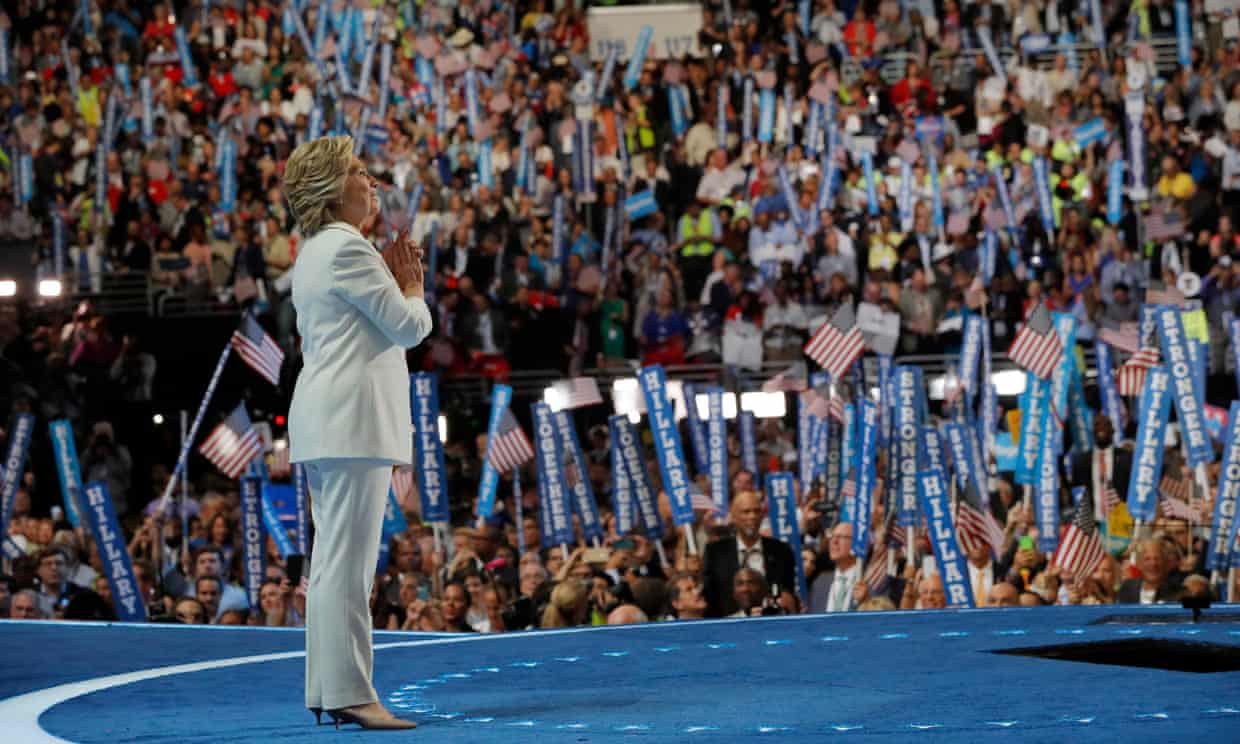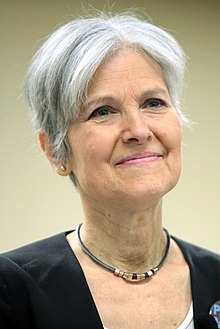Question:
"Then why do so many liberals consider it taboo to even suggest adjusting these systems to ensure their sustainability for future generations?"
Response: Liberals emphatically do not regard it as "taboo" to "adjust" these systems so long as that does not mean outright cuts - which serve no one's purpose. In addition, adjustments have already been implemented including ACA future budgetary fixes to "means test" more middle class seniors in Medicare as well as moving greater medical burdens to individuals, including: higher medical co-pays, higher premiums, etc.
This response is needed given 'We The People Live' host Josh Zepps' claim of "progressive orthodoxy" (e.g. to fix Medicare especially) in an original Salon.com video filmed at the Democratic National Convention. (You can google Josh Zepps video at DNC to pick it up)
Zepps claims that America’s resource allocation is "in need of a serious reexamination" This is also a theme that's been recycled in a number of media outlets including The Wall Street Journal, The Financial Times and New York Times. The core argument or thread running through all is: Young workers, families are getting the shaft as more and more resources, funds are funneled to the elderly in social programs.
What is Zepps further justification? He argues:
“Medicare costs more than $500 billion per annum, 30 percent of which is spent on the five percent of beneficiaries who die each year. One third of that is spent on the final month of life. The final month. I mean, you want to talk about priorities, let’s just take that one datum. More than $50 million each year spent on the final month of life.”
Let's examine this at some length. First, Medicare costs are exploding, but a large part of that is due to a program called "Medicare Advantage" (MA) which was created by BushCO and the Republicans with their Medicare Modernization Act of 2003. It basically confected a privatized form of Medicare ("Part C"), with the express purpose of bleeding regular (traditional) Medicare into insolvency by blowing up to $20-25 billion or more a year (based on gamed "risk scores") and funneling much of it from the older program. Unless this (MA) program is killed (the sooner the better), no other cuts will matter - because MA will metastasize to the point every $ is swallowed up.. For those who wish to read the details on why MA is hurling Medicare into insolvency check out the content in these links:
https://www.publicintegrity.org/2014/06/04/14840/why-medicare-advantage-costs-taxpayers-billions-more-it-should
And: https://www.medicareresources.org/blog/2015/11/04/is-medicare-on-the-brink-of-insolvency/
https://www.publicintegrity.org/2014/06/04/14840/why-medicare-advantage-costs-taxpayers-billions-more-it-should
And: https://www.medicareresources.org/blog/2015/11/04/is-medicare-on-the-brink-of-insolvency/
Zepps is correct about the magnitude of Medicare spending in the final months of life. But I believe that is the fault of the medical establishment and its specialist practitioners. This is based on not leveling with severely infirm elderly people regarding limits of additional treatments and their real costs v. benefits.. Missing in most treatment discussions, for example, is any reference to quality of life . The focus is exclusively on quantity and that also often comes with huge medical costs. Missing "the talk" is it any wonder older patients tend to believe medical treatments can offer curative solutions rather than only palliative ones?
In my own case I already mentioned my prostate cancer which has now recurred. I also discussed some of the many treatment options, e.g .
and:
I have been immersed in research on treatment options and what I have found thus far isn't encouraging, including:
1) Cancer experts themselves can't agree on which primary treatment is best.
2) The same experts (oncologists) can't agree on which ("salvage") treatment for recurrent disease is best, or when to start it.
3) Most agree that if a guy has recurrent disease and a biopsy shows it has spread to the bones ("bone mets"), his days are basically numbered - though certain treatments (e.g. hormone) will allow some limited life extension.
The question then becomes: How much life extension? While I don't want to croak prematurely and deprive my many readers of my blog posts and insights, I also recognize that once I hit a certain phase in possible further treatment (called "castration resistance") it is basically time to pack it in. Game over. Finito. Some will yelp: "You can't give up or quit!" but the flip side of that is Zepps' point that we spend excessively to stay alive in the last months when all the pointers show we ought to be going to hospice care and telling the medical industrial complex 'Enough!'
The problem is that the medical complex doesn't want to quit since they see it as a renunciation of their practice to fight for life all costs. Hence, they regard the palliative option as failure, even though added treatments may only marginally increase life - but usually at the expense of life quality. (E.g. hormone treatments for advanced prostate cancer can increase life by 1-3 years but usually with side effects including: memory loss, depression, diabetes, cardiovascular problems, enlarged and tender breasts, shrunken testicles, zero libido and hot flashes such as suffered by menopausal females.).
The problem is that the medical complex doesn't want to quit since they see it as a renunciation of their practice to fight for life all costs. Hence, they regard the palliative option as failure, even though added treatments may only marginally increase life - but usually at the expense of life quality. (E.g. hormone treatments for advanced prostate cancer can increase life by 1-3 years but usually with side effects including: memory loss, depression, diabetes, cardiovascular problems, enlarged and tender breasts, shrunken testicles, zero libido and hot flashes such as suffered by menopausal females.).
So in this I do side with Zepps. The tricky question for him (and other would be "adjusters") is: WHO assumes responsibility for telling an older patient his or her days are numbered and they need to just go gently into that good night? Medicare now has a special program where end of life issues are addressed, but as yet too few patients are getting these consultations, often because their nervous PCPs don't refer them.
I encountered this when I told my own PCP back in June - after the latest PSA test came back at 6.0 - that I planned to do nothing more. I wanted no urologist referrals, no more biopsies, no more anything. Her reaction? She wouldn't hear of it. Short of strapping me down to the exam table and coercing me, she said I HAD to see the urologist and listen to what he said concerning the latest MRI results So, while my inclination was to halt all further medical involvement, she wasn't going to play along. In effect, she intended to add more medical intervention and expenses to my Medicare account. .(Mind you, her adamant stance could well be traced to our litigious culture, especially relative to medical practitioners, whom we often hold to absurd standards of action and judgment.)
Same thing with an oncology RN at UCSF who phoned me up after the MRI and stated I "sounded too young" not to accept brachytherapy salvage therapy, i.e. instead of possibly dying at 74 or 75. When I asked about the side effects she kind of dodged the extreme "level III toxic comorbidities" which included loss of bowel and urinary control and extreme pain with every excretion - thanks to the radiation (36 Gy delivered in two fractional treatments a week apart - under general anesthesia)
Same thing with an oncology RN at UCSF who phoned me up after the MRI and stated I "sounded too young" not to accept brachytherapy salvage therapy, i.e. instead of possibly dying at 74 or 75. When I asked about the side effects she kind of dodged the extreme "level III toxic comorbidities" which included loss of bowel and urinary control and extreme pain with every excretion - thanks to the radiation (36 Gy delivered in two fractional treatments a week apart - under general anesthesia)
How does Zepps propose we deal with such situations? Clearly, his superficial call for simple "adjustments" shows he doesn't want to get "in the weeds". But at the same time, you can't just uniformly cut $50b from Medicare and tell sick oldsters to "sink or swim". And as I noted, Medicare already has the end of life palliative care option in the program (as part of the ACA), ostensibly to limit end of life expenses. But how does it get maximized without resorting to draconian cuts? The devil, as always, is in the details.
Zepps adds:
"The left needs to reckon with the uncomfortable truth that what this country is doing is sapping the vitality of the young and pumping it into the elderly,” he says. “It is a gigantic resources Hoover from young professionals into old retirees.”
But as I pointed out the ball is not in the "Left's" court, it is really in the province and court of the medical establishment. It is also in the court of the craven politicians who are not prepared to tell Medicare Advantage folks that they need to come out of that too expensive program and go into regular Medicare. Their MA is costing taxpayers way too much each year.
First, if Medicare Advantage had been mothballed, as Obama originally vowed to do back in 2011-12, we would already have seen more than $75 b saved over the past 4 years. Second, if that Part D Medicare drug plan had been altered to allow bargaining for lowest cost prescription meds like the VA, another $200b would have been saved. (Especially in the wake of the news that costs for catastrophic disease drug prescriptions (like for Hepatitis C) have gone up 85% since 2013.
Third, if the medical establishment more faithfully implemented end of life palliative care conversations with patients - via the Medicare program for that purpose - we'd save a lot of that $50b used in the last months of life. But this portends a massive change in perception by that same medical establishment, to wit, maybe they themselves need retraining especially in the nature of palliative care. This latter as opposed to pushing new and expensive treatments that only marginally improve life extension.
How then do we convince patients as well as the medical experts that end of life quality is as important as quantity?
When Zepps can answer these difficult questions, as opposed to merely interjecting "adjustments" (read cuts) for the sake of cuts, we would be more likely to take his arguments seriously. It is evident to this observer that Zepps, like so many of his younger cohort, is too ready to blame oldsters for what are really faults of the health system we have. That includes the presence of insurance companies with their built in extortion and selective rules As I noted before, the only way out is a single payer system such as my wife and her activist group are fighting for here in Colorado with ColoradoCare and Amendment 69, see e.g.
http://brane-space.blogspot.com/2016/07/janice-gives-robust-defense-of-colorado.html
http://brane-space.blogspot.com/2016/07/janice-gives-robust-defense-of-colorado.html
Sadly, Zepps objects to those who would "change the topic" by pointing to other items in the federal budget that could use cutting. But this is being myopic and foolish. Because unless we closely examine those other items, especially military spending for which the GDP allocation has doubled since 9/11, we will never get anywhere in terms of real world priorities. See e.g. http://brane-space.blogspot.com/2012/07/muricans-need-to-wake-up-about-military.html
Does the U.S. REALLY need 900 foreign military bases worldwide to fund to the tune of over $1 trillion a year? Especially as the Pentagon already "misplaced" $1.2 trillion in budget allocations prior to 9/11, according to former Defense Dept. analyst Chuck Spinney in a 2002 PBS NOW appearance . Does U.S. "defense" spending REALLY need to exceed that of the next 25 nations? Clearly Zepps needs more education, though one must give him a prop or two for his audacious salon.com video. But to shed needed light (for his benefit) we can thank Nancy J. Altman and Eric Kingson, authors of 'Social Security Works' .
As the authors observe (p. 40):
"It is false that most older Americans are on "easy street". A very small percentage are, many more are poor or near poor, while some maintain a modest, middle class life style, often struggling to make ends meet."
So much for Zepps' indiscriminate claim of a "resource Hoover" hoovering up everything not bolted down for the benefit of fat, complacent seniors. (Many of whom still have kids living in their homes, basements because they can't get decent jobs).
Last but not least, Zepps doesn't cover Medicare fraud at all, which could easily be neutralized by implementation of a computer system to track care received over time by different providers.
I have shown in this post (including links) that Zepps' arguments are immature and don't take full account of: a) how seniors have been exploited by the existing system, and b) how younger workers and families are being exploited by a Neoliberal system with misplaced priorities. One whose design and financial reward basis finds it more profitable for companies to fund massive stock buybacks than create jobs with decent salaries.
But one thing we cannot do is permit superficial memes and facile arguments against senior health and other benefits to be spread, thereby propelling a push for an elderly "hunger games" .
Btw, if the Reepos in the Nov. election seize all branches of the government, Zepps may get his wish of massive cuts, thanks to Paul Ryan's Medicare voucher plan.. That will save hundreds of billions for sure, but leave most elderly in the same position they were in before Medicare arrived in 1966. That is, begging and scraping for financial help from family, offspring just to stay alive to deal with normal health issues - never mind treating stage IV prostate or breast cancers.
Does the U.S. REALLY need 900 foreign military bases worldwide to fund to the tune of over $1 trillion a year? Especially as the Pentagon already "misplaced" $1.2 trillion in budget allocations prior to 9/11, according to former Defense Dept. analyst Chuck Spinney in a 2002 PBS NOW appearance . Does U.S. "defense" spending REALLY need to exceed that of the next 25 nations? Clearly Zepps needs more education, though one must give him a prop or two for his audacious salon.com video. But to shed needed light (for his benefit) we can thank Nancy J. Altman and Eric Kingson, authors of 'Social Security Works' .
As the authors observe (p. 40):
"It is false that most older Americans are on "easy street". A very small percentage are, many more are poor or near poor, while some maintain a modest, middle class life style, often struggling to make ends meet."
So much for Zepps' indiscriminate claim of a "resource Hoover" hoovering up everything not bolted down for the benefit of fat, complacent seniors. (Many of whom still have kids living in their homes, basements because they can't get decent jobs).
Last but not least, Zepps doesn't cover Medicare fraud at all, which could easily be neutralized by implementation of a computer system to track care received over time by different providers.
I have shown in this post (including links) that Zepps' arguments are immature and don't take full account of: a) how seniors have been exploited by the existing system, and b) how younger workers and families are being exploited by a Neoliberal system with misplaced priorities. One whose design and financial reward basis finds it more profitable for companies to fund massive stock buybacks than create jobs with decent salaries.
But one thing we cannot do is permit superficial memes and facile arguments against senior health and other benefits to be spread, thereby propelling a push for an elderly "hunger games" .
Btw, if the Reepos in the Nov. election seize all branches of the government, Zepps may get his wish of massive cuts, thanks to Paul Ryan's Medicare voucher plan.. That will save hundreds of billions for sure, but leave most elderly in the same position they were in before Medicare arrived in 1966. That is, begging and scraping for financial help from family, offspring just to stay alive to deal with normal health issues - never mind treating stage IV prostate or breast cancers.




